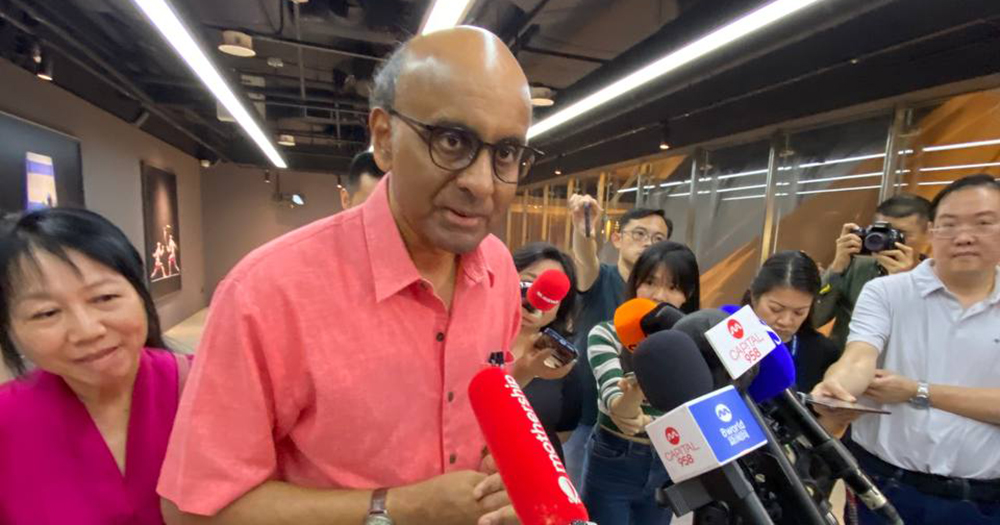As for the pineapples he has received, these have been given to his volunteers, he added.
Such things are inevitable in an election, he added.
I would like voters to remember that PE2023 had a multiracial slate
Tharman was responding to a question posed by Mothership about his plans for Cooling-off Day at OUE Downtown.
He added that he would also like voters to remember the 2023 Presidential Election as one that was contested, had a multiracial slate of candidates and that Singaporeans are rising above race in the country, year by year.
"I'd like it to be remembered as a contest where people actually do look at individual track records and life histories."
In addition, while there has been a lot of political noise, Singaporeans are quite "calm and sensible", he highlighted.
Tharman: No idea if I will win
Tharman then emphasised that he did not have any idea if he would win.
When asked about a YouGov survey that said 76 per cent of Singaporeans were familiar with his campaign message and whether it would increase his odds of winning, Tharman replied, "I can't really say."
He elaborated:
"I always take the view that you can never tell until Election Day. In my mind, the way I frame it, it's always uncertain and it's a tough fight."
Tharman then acknowledged that while he was a "known quantity" because of his domestic and international status and that it was an advantage, one can never tell in an election.
"I assume nothing in terms of what the outcome can be," he said.
I do think I represent the best for the future of the Presidency
Tharman then added:
"I hope Singaporeans would vote for me because I do think I represent the best for the future of the Presidency at a time when the demands of the Presidency are going to grow."
Such demands will not just pertain to the use of reserves but even to the traditional roles of the Presidency -- how Singapore can be held in high regard internationally and how bonds and initiatives on the ground can be supported to grow a culture of respect for all, he explained.
He said:
"Sometimes, it's called a ceremonial role, but it depends on what you make of it. I intend to be very active in these traditional roles, domestically and internationally. That's quite apart of course, from the critical function of what you call the custodial role over the use of the reserves and the integrity of the public sector."
Top photo by Fiona Tan


